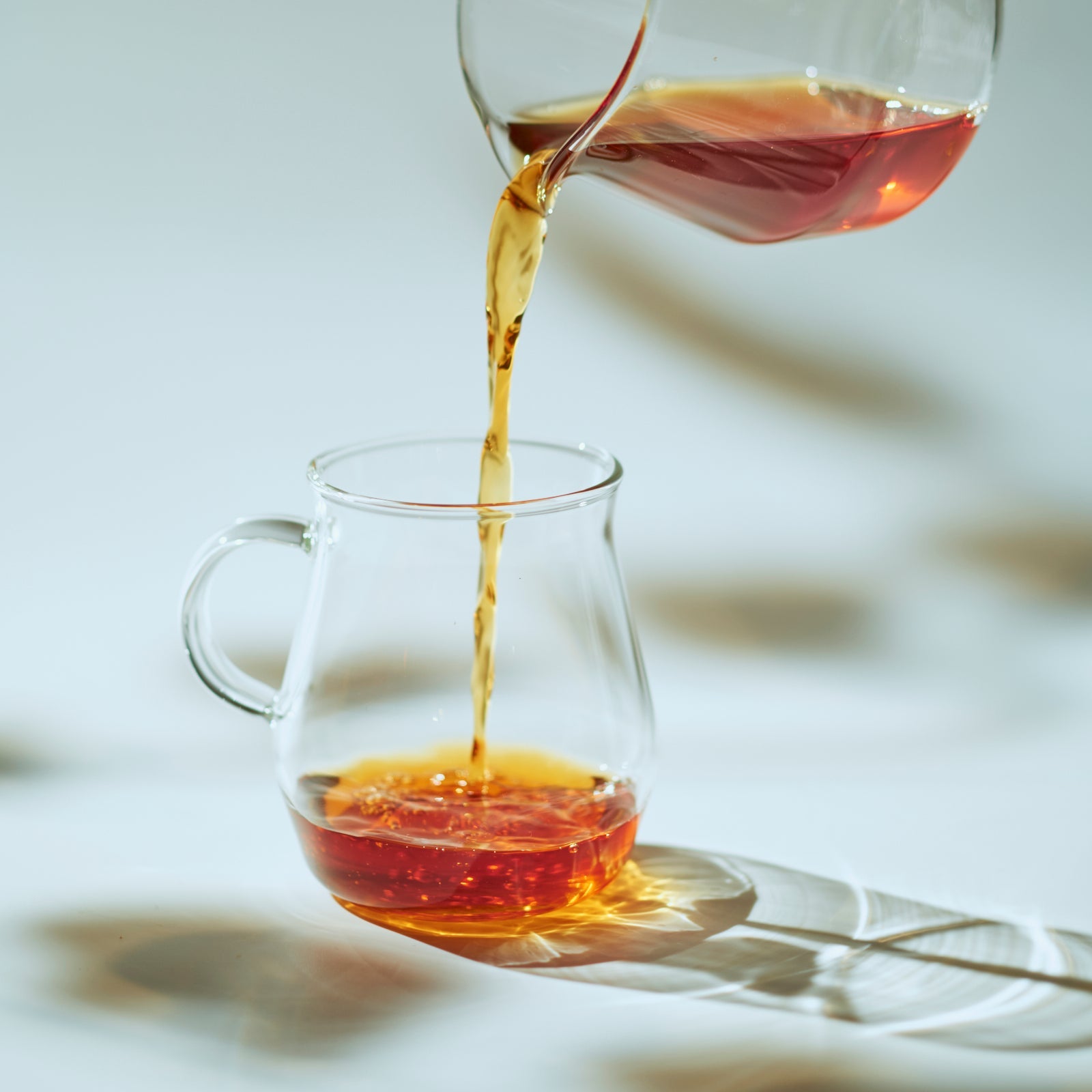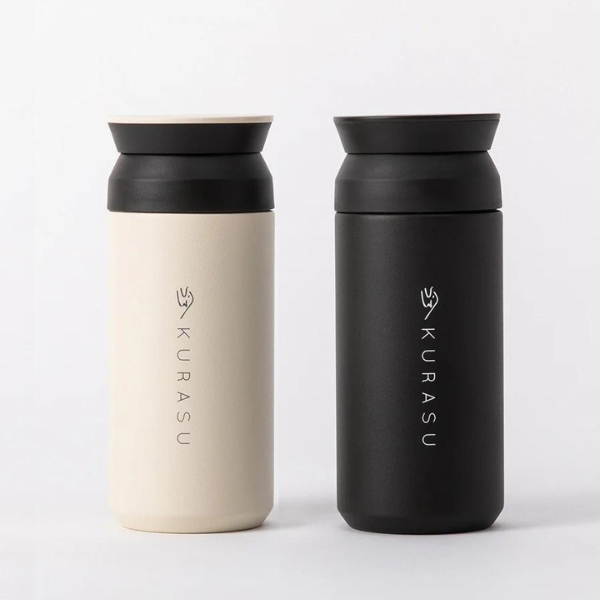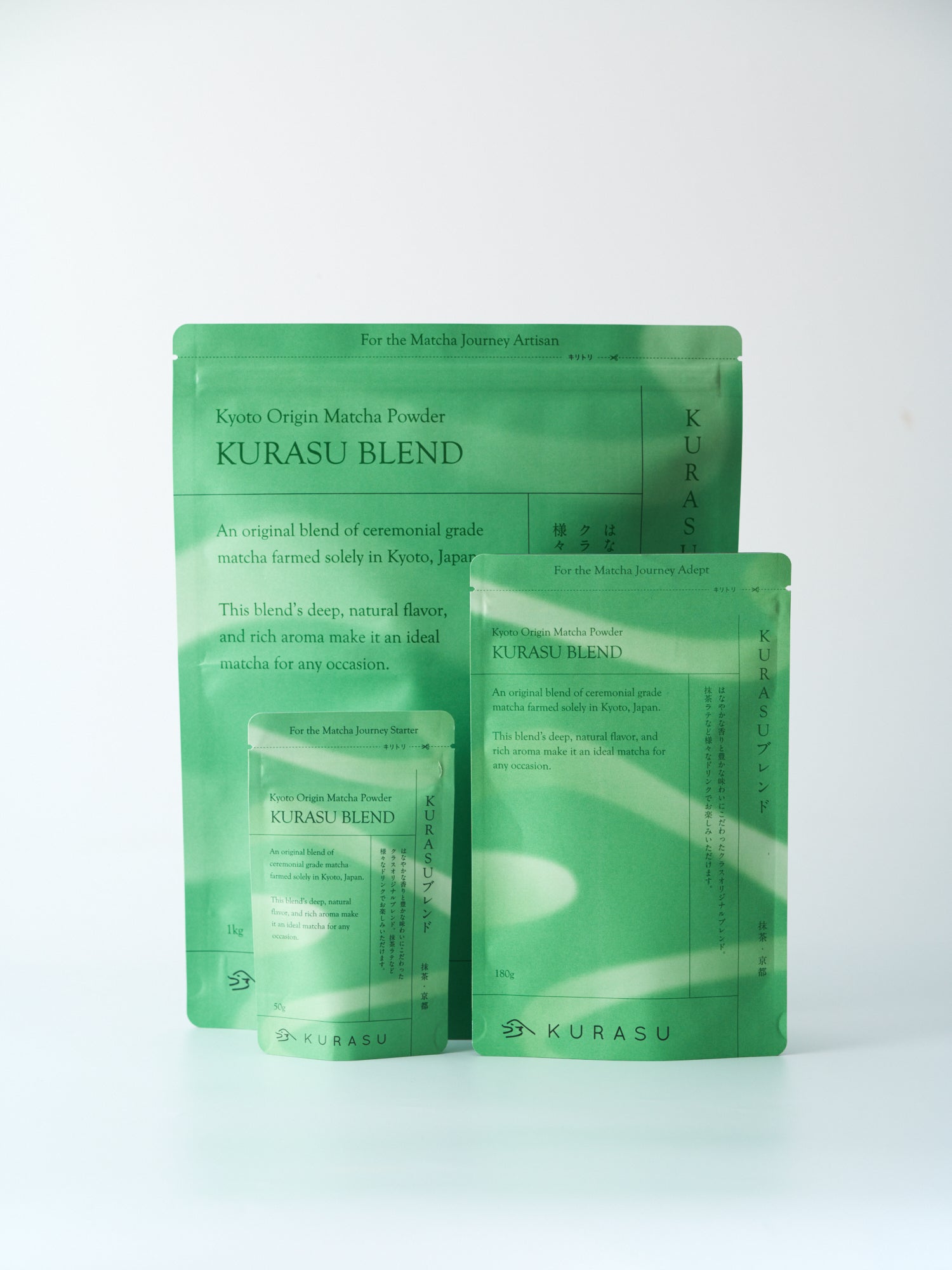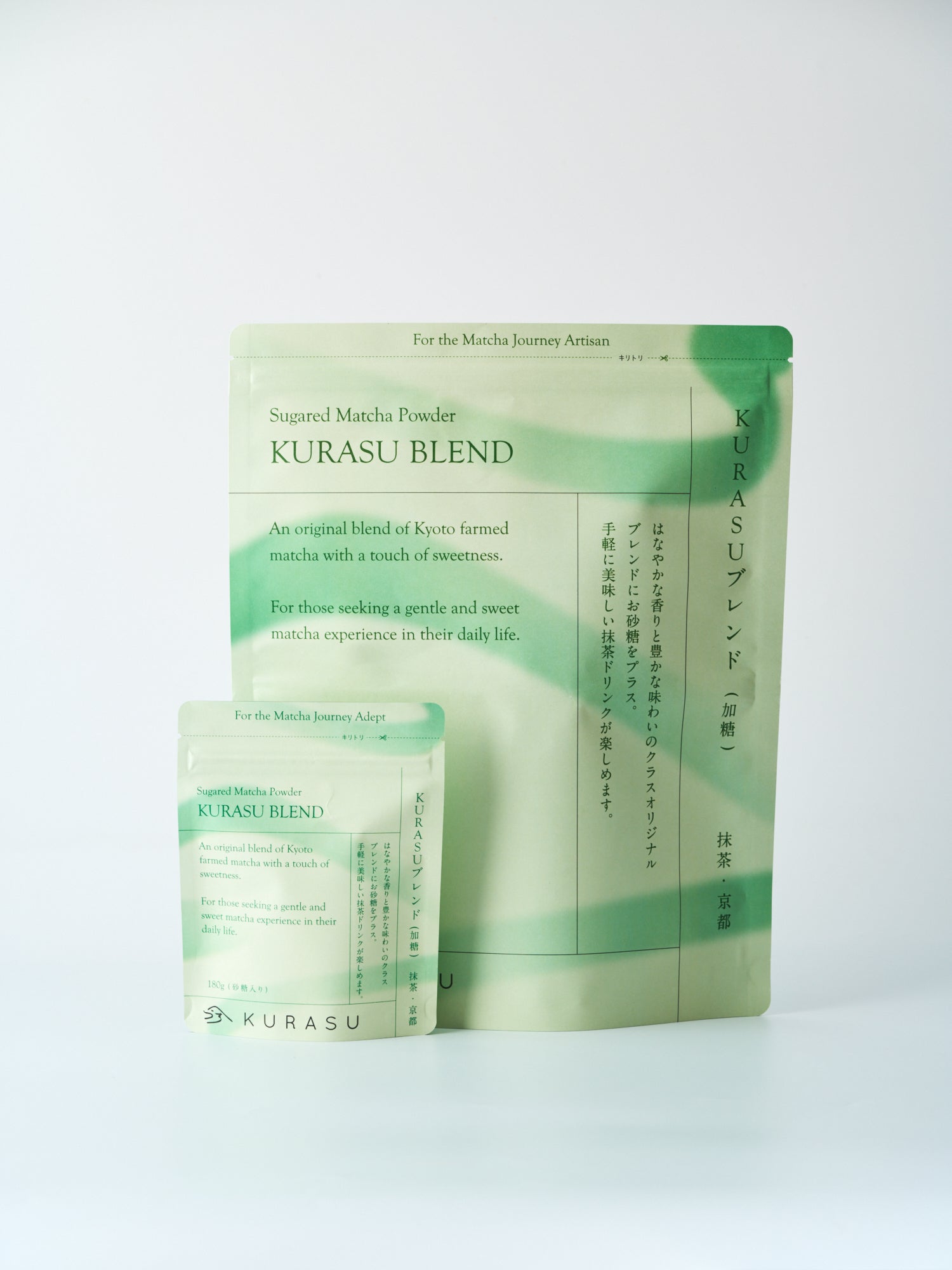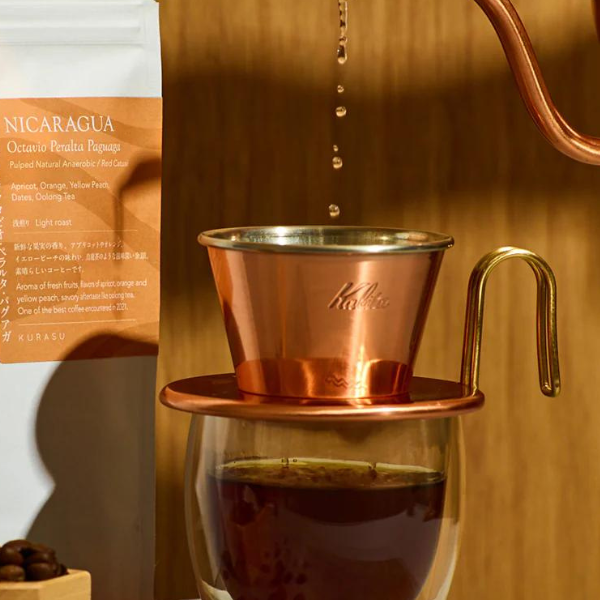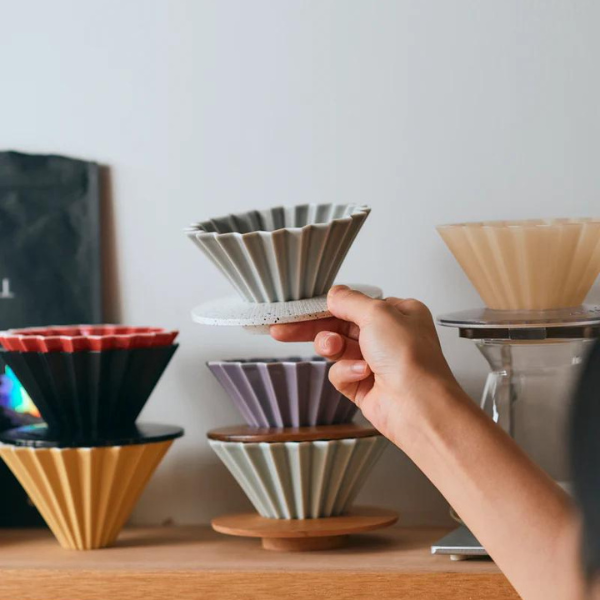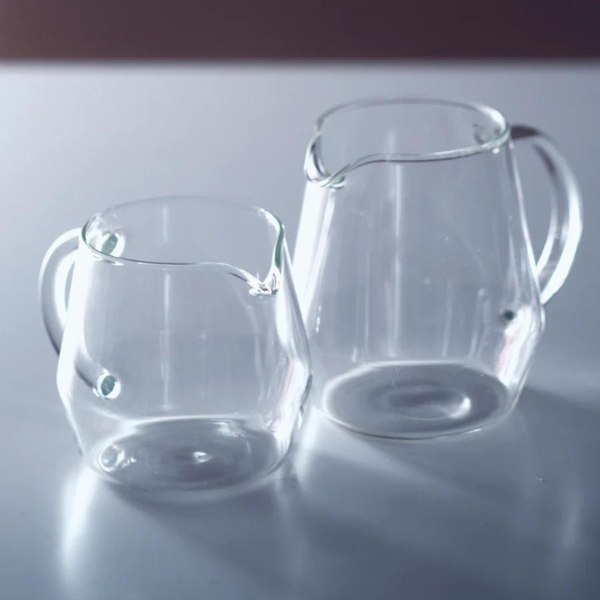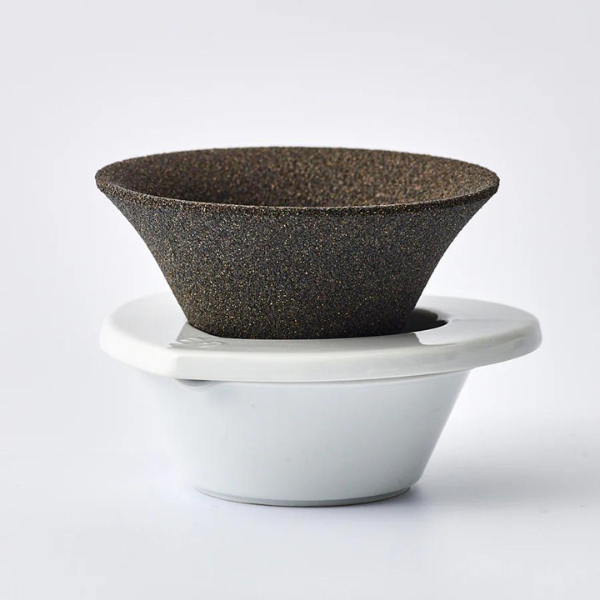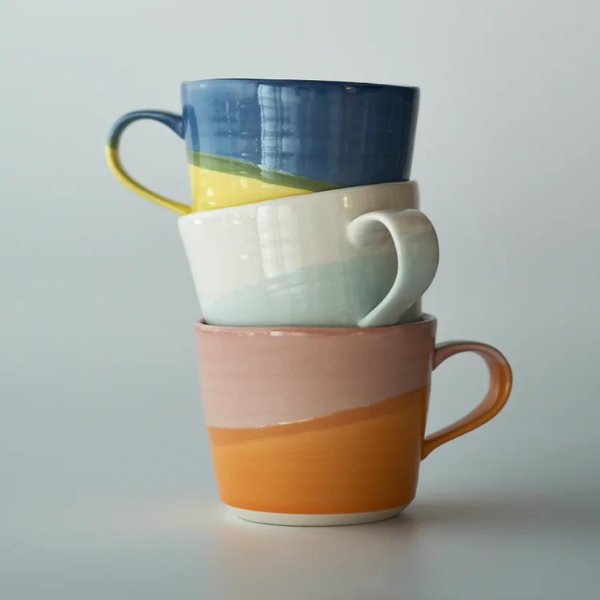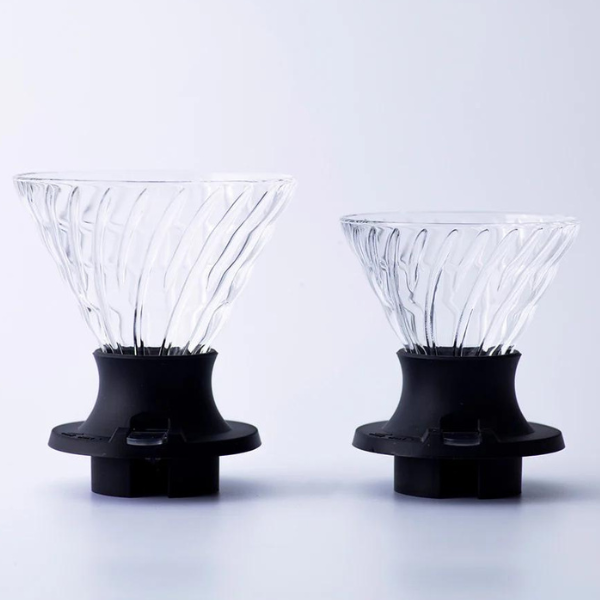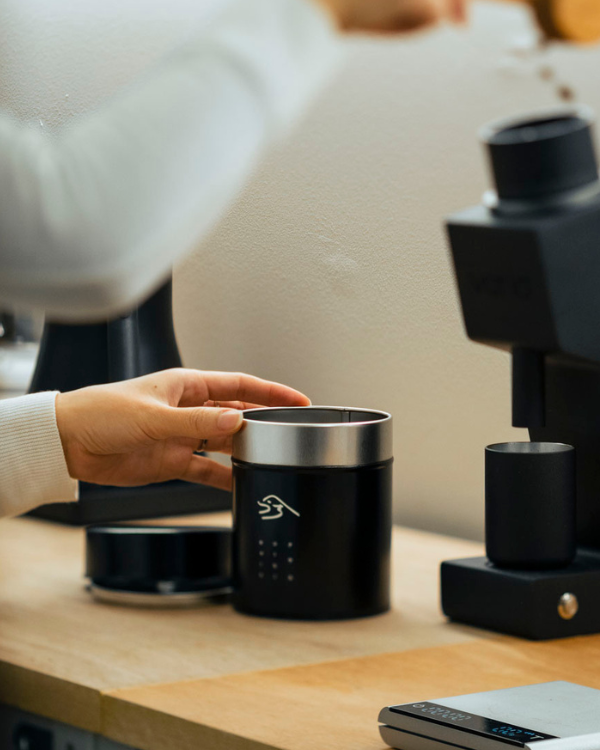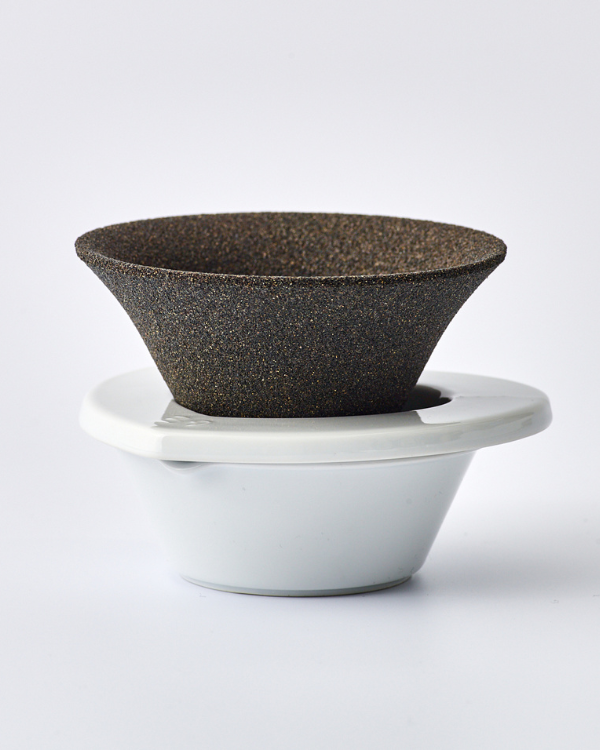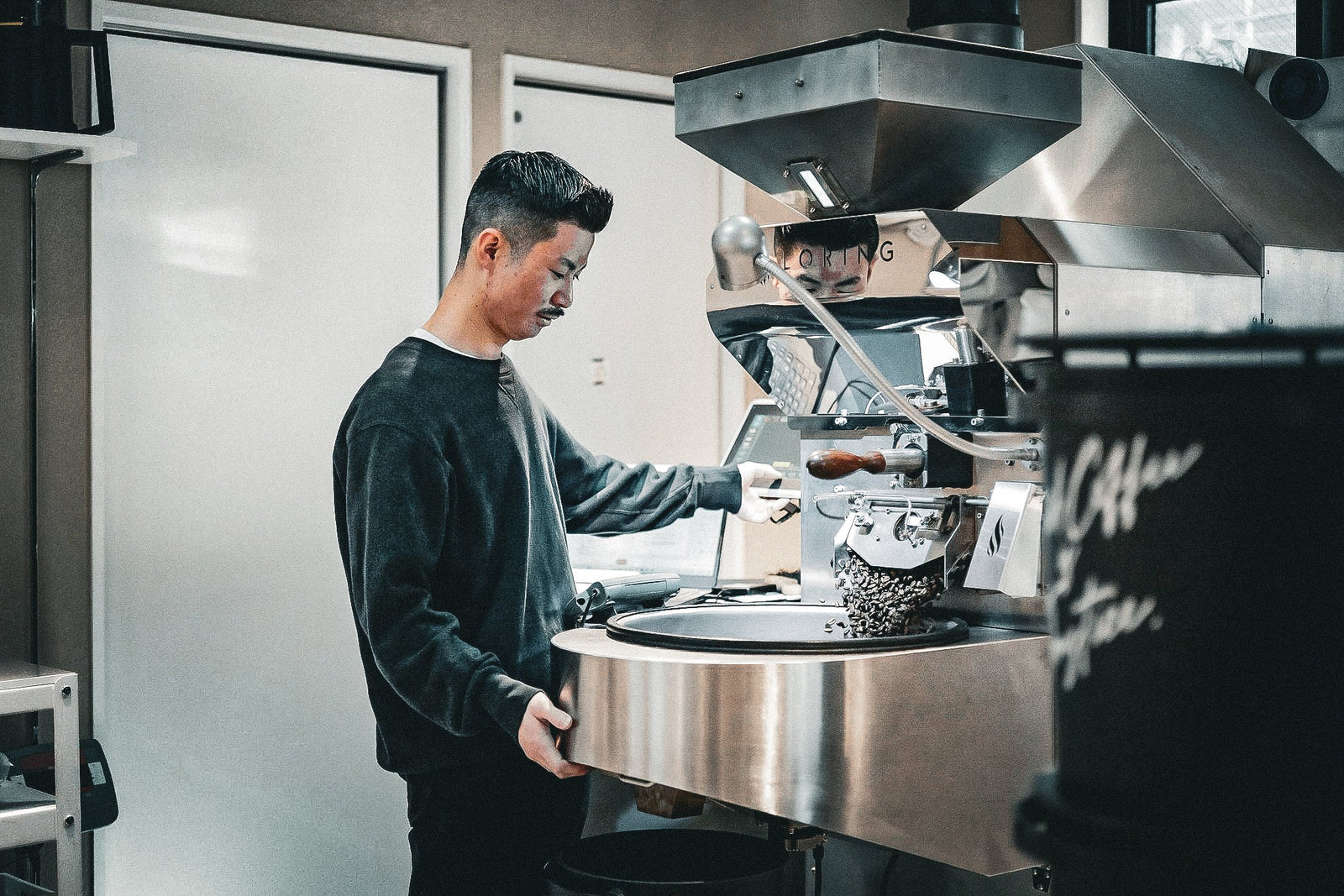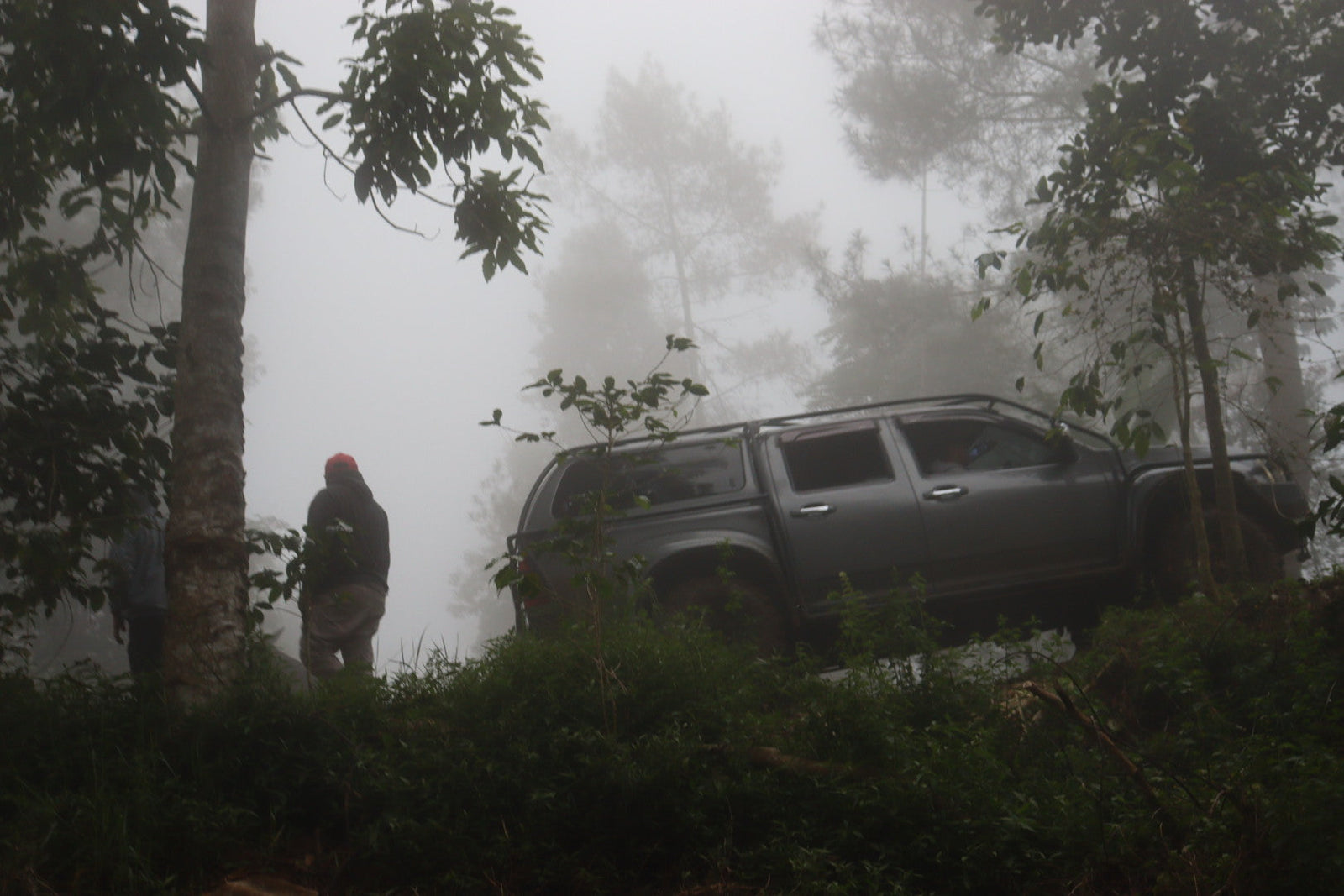The next #kurasucoffee roaster is TAOCA COFFEE in Hyogo. They have just opened their second branch in Okamoto in Hyogo after their original cafe/roaster in Kurakuen, which is much-loved by locals. We interviewed the owner/roaster, Taoka-san to discover the backstory of his fast-growing specialty coffee roaster.
TAOCA COFFEE OKAMOTO KOBE is only a few steps away from Okamoto station of Hankyu Railways. Beautifully paved paths around the area also lead you to independent clothes shops, well-known bakeries and patisseries, as well as organic food cafes. Okamoto is the area where people visit to discover things of a higher quality for their everyday life, rather than for cutting edge trends.
Established by Ichizo Kobayashi, who is also known as the founder of Takarazuka Revue, a century-old all female theatre organization, Hankyu Railways has a reputation for developing a high end area alongside its railway lines. The reputation of the quality of Kobe-line is particularly strong, and Okamoto is one of the most popular areas on the route. Kurakuen, where TAOCA COFFEE’s original shop is, is also a luxurious residential area. Taoka-san's decision to locate his roaster there reveals his business acumen and highlights his achievement for spreading speciality coffee in Japan.
While they originally started with 8 kinds of beans, 10 to 12 are now regularly available, and customers can taste all of them before choosing. Usually, the staff are present to advise and consult, typically suggesting to try 3-4 kinds at one time which is the easiest number to choose between. Taoka-san told us that their generous sampling enables them to introduce speciality coffee in a much better way and as a result their customers feel the excitement of choosing what they really like. Among the 12 kinds of beans there are roughly three groups of roasting- light, medium, and dark. They roast every day, and organise their schedule to ensure there is a fresh roast of each type at least once every 2 days. Taoka-san and Tasaka-san (who is called “Mr. Knit Cap” by the local customers) are in charge of TAOCA COFFEE’s roasting.
People in the Kansai area (the western area of Japan, around Osaka) were not very familiar with the culture of specialty coffee and selling whole beans when TAOCA COFFEE opened its first branch. Taoka-san saw the opportunity and possibilities to develop a market for it, in an area with so many people interested in trying new things and who can afford to try out this new kind of coffee which can be 2-3 times more expensive compared to typical, every day coffee that people are used to. His hunch was right- and after 3 years it was unusual to even hear the once frequent question: “what is specialty coffee?” Today, 92% of their sales are to their local customers. Taoka-san says he truly is grateful for the love and support he has received from the area, and feels that there is no absolute formula to stay popular and to keep on improving.
Taoka-san Meets Coffee
After his graduation, Taoka-san got a job at a trading company and worked there for 2 years. However, he always dreamt of running his own business from the very beginning, he first considered opening a Korean BBQ restaurant as he gained some experience in the industry when he was a student and that opened his eyes to the world of business.
Later, Taoka-san came across a vacancy for a marketing job at Doutor Coffee, and despite not having much knowledge or passion for coffee, he applied for the job in order that he could gain some experience in marketing. Doutor assigned Taoka-san to the team developing their new coffee shop chain, and this was the moment that led Taoka-san to his fate for a life with coffee.
Unlike Doutor’s original cafes and their other established chains such as Excelsior Cafe, Taoka-san and the team had to create a menu, train people and all the other elements needed to start a business from scratch. This experience had Taoka-san learn so much about running a cafe, and also the hard lesson that even a big name like Doutor can fail in launching a new business venture. More than 10 branches were closed despite all the market research into the clientele and locations, and Taoka-san realised that running a new business is nothing more than a gamble even for a big, experienced company.
Since the event, Taoka-san became worried about getting buried deep in his daily routine working at such a big company as one of 2,000 colleagues. But that was until fate called upon him- one day, a fax landed right next to Taoka-san’s desk, it was a notice of an in-house elimination for Japan Barista Championship. Taoka-san didn’t hesitate to apply, and that led him to his first encounter with specialty coffee.

A Change in Career
At Doutor, Taoka-san already had some experiences as barista and he could do latte art as well- but the championship gave him a whole new level of experience with proper training and wider interaction with people outside of the company. This led to his love and his interest in coffee significantly growing. Soon Taoka-san started to dream about the independence in the coffee industry, especially with specialty coffee as he could see the growing appeal, the straightforward business model and the idea of contributing to the development of the farms strongly resonated with him.
However, as Taoka-san had witnessed previously, starting a business is a gamble. Taoka-san met as many people as possible to seek advice, and came to the conclusion that the way forwards was to start by selling beans as in terms of cost and resources, and it was a size of business he would be able to handle. Meanwhile, Taoka-san asked for a transfer to Doutor’s roastery in Kansai to gain some experience as a professional roaster. There, Taoka-san experienced roasting of a huge amount which any small-sized roaster would never see. This transfer led to countless cuppings, and through that, Taoka-san established a keen sense of taste and talent for developing flavours.
“A roaster’s job is to find the flaw in a roast”, Taoka-san explains. When we say cupping in the context of specialty coffee, we do it to find all the good thing about a particular coffee to create a profile. On the other hand, the cupping Taoka-san was doing with Doutor’s roast was to do a thorough hunt for any flaws and to achieve a consistency in the high quality of their products. If a roaster finds it too bitter, they then logically analyse thechanges needed to the level and method of roasting and quickly implement them. This seemingly contradictory approach as a roaster was fundamental in building Taoka-san’s skill.
Independence and Pursuit of His Roast
Taoka-san knew what kind of flavours are popular in the world- so he brushed up his skill of finding the strengths and flaws in different beans. It didn’t take long for him to establish his roasting style and determined the flavours he wanted to pursue. Taoka-san had a national tour of roasters and met many people, including some who taught him how to roast with Probat. After that experience with only a few batches of test roasting, Taoko-san finally decided how he wanted to roast his coffee. Since then, he has only adjusted his roast on 5 occasions. Those changes came about as Taoko-san learned new skills and techniques,- they all reflect the personal growth Taoka-san has been going through.
The Probat 5kg roaster that Taoka-san uses showed up just like the fax that changed his life- when Taoka-san was about to confirm the purchase of a brand new roaster, he came across a second-hand, but almost brand new, machine that used to belong to an old lady in Tokyo but was just getting dusty in the corner of her small shop. Taoka-san saw it as a sign and decided to make it his partner. Taoka-san values the sweetness in coffee a lot- he chooses sweet green beans, and roasts to extract the maximum sweetness out of them. Experiencing different characteristics of the beans and of the roaster is one of the most enjoyable experiences in trying out specialty coffee, but Taoka-san always makes sure that his coffee is sweet and easy for everyone to drink .
“In theory, I can roast 3t per month with a 5kg roaster” says Taoka-san, explaining how the big roaster needs a big batch to optimize its power but that’s not really his style for now. “People often say ‘the bigger the better’, but that’s not the case with a roaster.”

Future Plans
Taoka-san feels that local roasters in rural areas tend to contribute more to the introduction of specialty coffee to new people, whereas the ones in big cities full of choices of new things.
TAOCA COFFEE is trying to weave specialty coffee into people’s life by providing sample tasting to reduce the mismatch between coffee and their customers, keeping their interior and design aesthetics simple. “We are trying to be at half step ahead of people to stay approachable, but serve with a technique that is many steps ahead of the industry”, Taoka-san says. Each steps may be small, but they are definitely stepping forward to the future and making a good change to people’s lives.
TAOCA COFFEE OKAMOTO KOBE came up as a plan after Taoka-san met a few baristas he wanted to hire for his team. “Yes I opened a branch at Kobe because we didn’t have enough space for them. Future plans? Surviving with what we have now is my main focus, but hey, I created a job, so that’s good, isn’t it?” Taoka-san jokes, but in his mind he is already planning a third branch focusing more on roasting. As a fellow roaster and businessman in Kansai, Taoka-san’s calm, logical and decisive attitude towards his endeavour was all the more inspiring.

